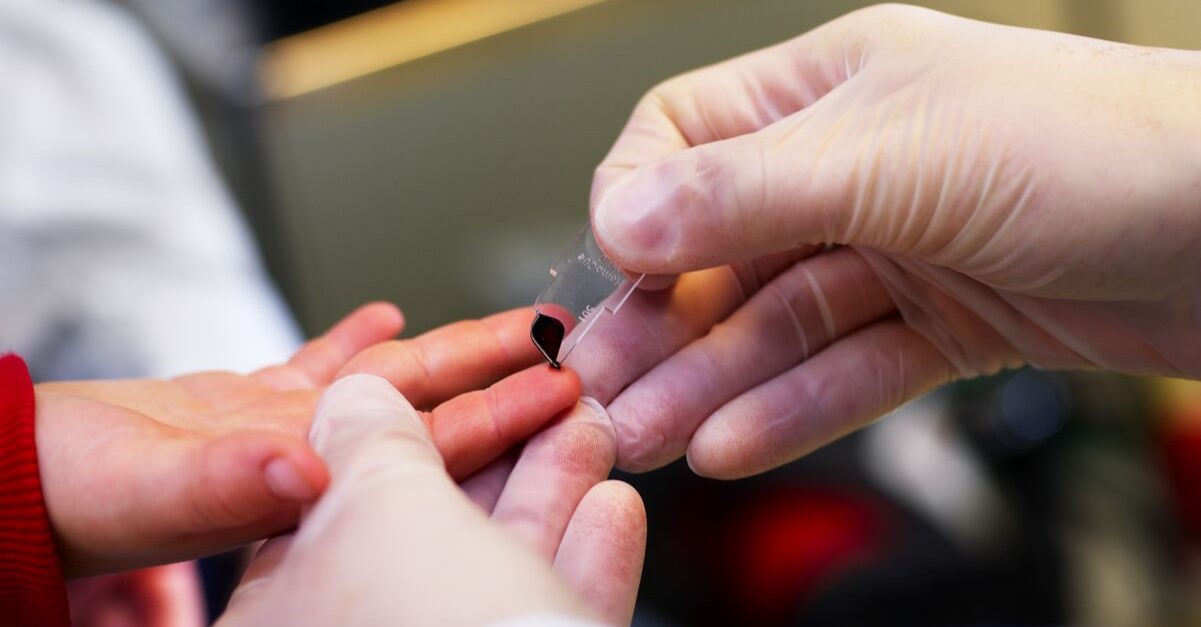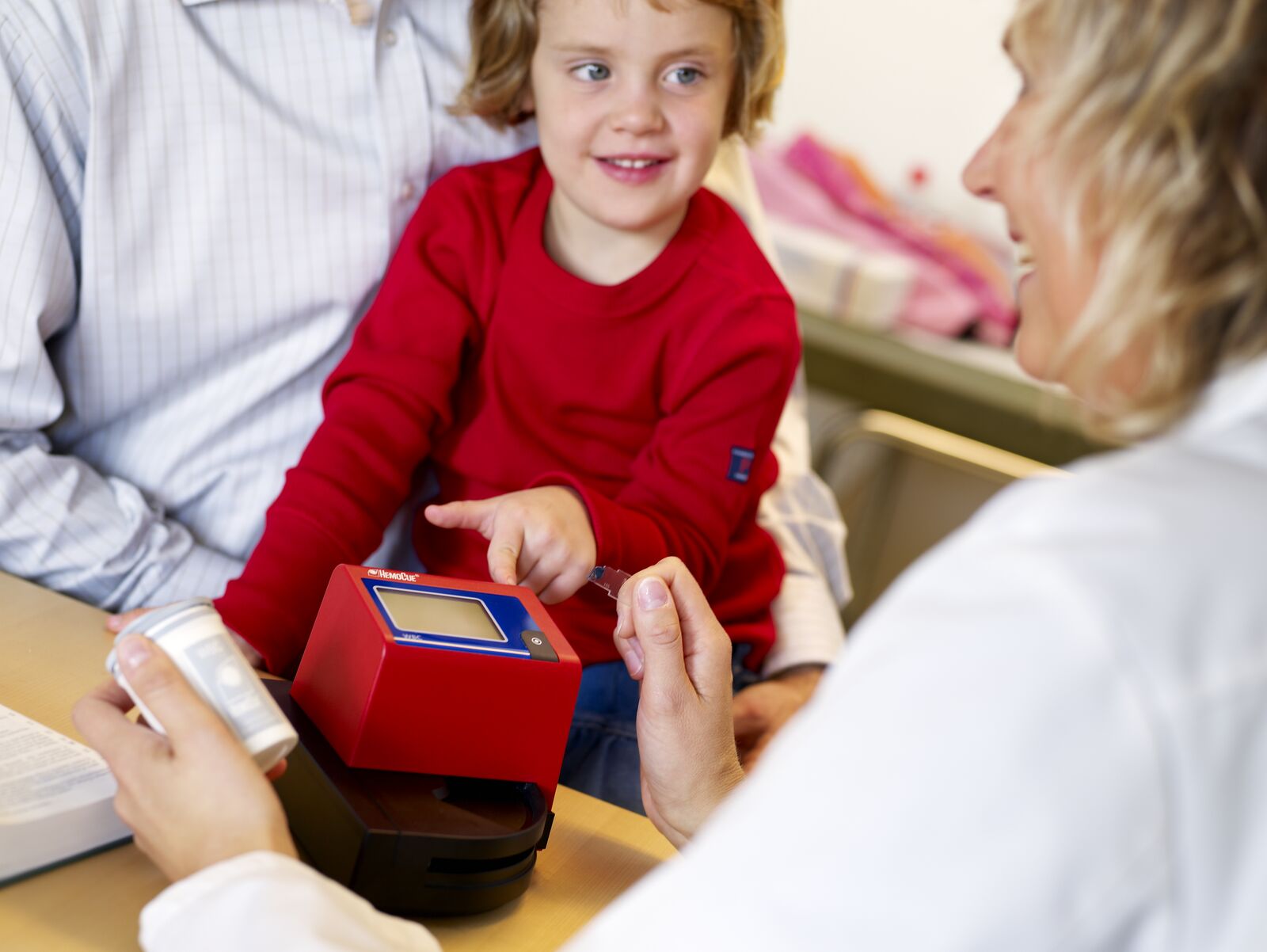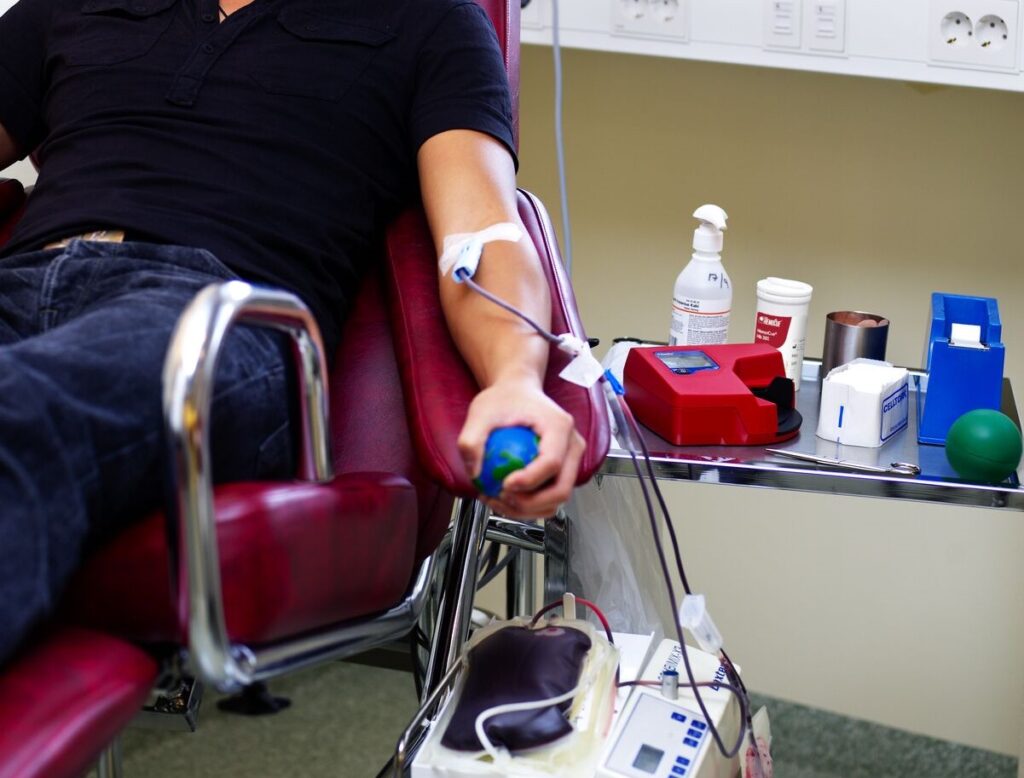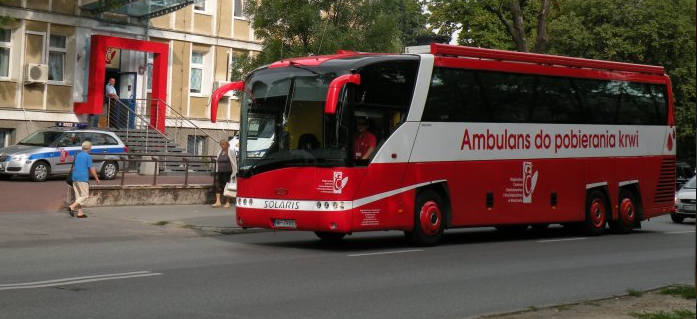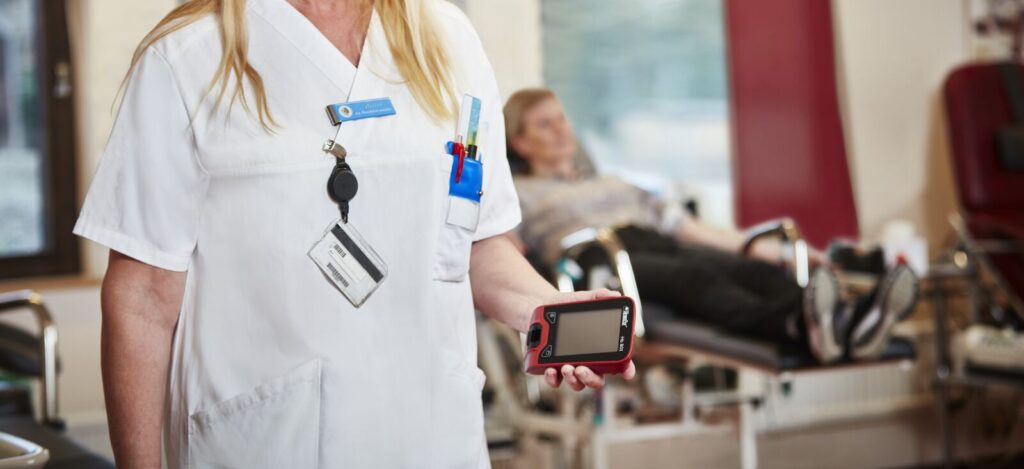No routine testing in children
There is no routine testing of children at the Pediatrics department in Turku. The patient always needs to see a physician before any testing is performed. Rapid point-of-care testing there and then, saves time since results are available immediately. Dr Jussi Niemelä experiences that handling patients is definitely more efficient now.
“Even if you get used to always having patients waiting, it is neither convenient for me nor the families. Everything simply runs smoother when patients don’t have to wait.”
Differential white blood counts are ordered when considered needed, such as for neonates, immuno-suppressed children, or patients where test values do not correlate with clinical signs.
Dr Niemelä recalls one occasion when he was especially pleased having the rapid tests at hand. A family came in a hurry with a sick child just before going abroad. They needed help to decide whether to catch the ferry or not.
“After clinical evaluation of the child and performing POC tests, we did not have to wait for more laboratory testing. I could reassure them that it was OK to travel since the child only had a viral infection. And they did catch the ferry. This might not be clinically the most relevant case, but it was absolutely relevant for real life.”


